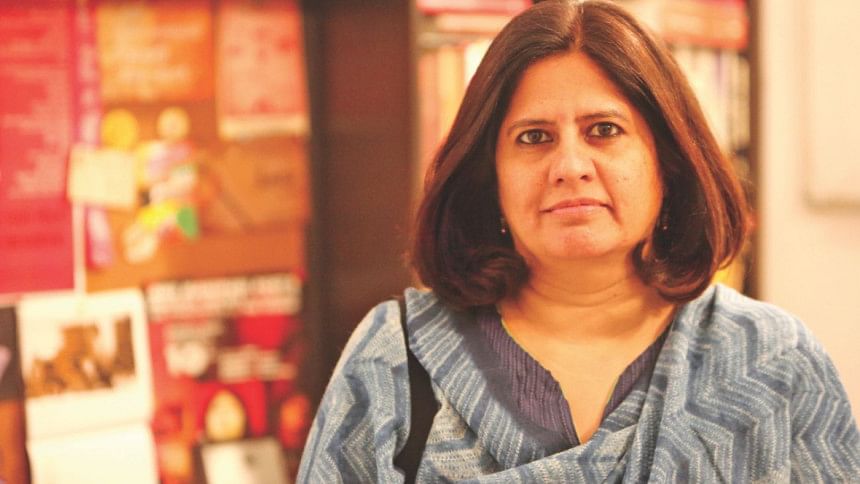We have not made the transition to the constitutional imperatives: Vrinda Grover

What are the main impediments to dispensation of justice in South Asian countries?
We see a lot of injustice across this region and it's brutal and it's glaring. In India, we have a constitution that guarantees equality and dignity. But as a society we have yet to emerge from various forms of discrimination and prejudice based on caste, feudalism, gender, religion, and ethnicity. It is good for countries to have constitutions that guarantee equality. But does that necessarily permeate the sensibility of those who are at the helm of institutions? Is that the manner in which legislators view all groups? Are these issues of priority to the executive branch? Is the judiciary taking its decisions in accordance with issues prioritised by the constitution? We still think that it's alright to oppress certain groups of people. Institutionally and as a people, we have not made the transition to the constitutional imperatives.
A lot of people continue to be persecuted and tortured in these sovereign states long after gaining independence from colonial regimes. Why do you think that is?
In India, after independence, servants of the crown were declared public servants. But the power, the immunity and the privilege that the law gave them were not changed. As a result, we see governments acting like rulers. They need to understand that their roles have changed. There is now a different paradigm of citizen-state relationship in which they need to engage.
What kind of challenges does an ordinary citizen face in seeking justice in India?
Let me take the example of a common woman. It would depend on many factors. Is she a Dalit? Is she a Muslim? Is she an Adivasi? The law says that she has a right to legal aid but will it be effective legal representation? Women have gone to courts. There are times when the courts have responded recognising their rights. And there are times when the courts have considered other interests—for instance, economic growth. Land has been grabbed, dams have been built and the working class people are saying that their rights are being trampled upon. Police stations do not necessarily inspire confidence. A woman from the working class will not usually turn to the police for help because she is afraid of facing further violence at the police station. There is a lot of systemic violence against the Dalit community. Rarely are those cases registered. Investigating police officers often do not investigate these cases properly. You will not have a case that will withstand the court's scrutiny and lead to conviction.
Do governments need to focus more on the professional development of law enforcement officials and prosecutors?
It is very important to understand the issue of social justice. Law enforcement officials should be taught not only the provisions of the penal code but also the constitution. What are the rights they have to protect? A police officer today [in India] thinks that he exercises power. He has a gun or a stick. And he thinks it's his job to go around putting people in place. I think somewhere we have made a mistake interpreting law and order. The job of the police is not to maintain law and order for the ruling class but protect the rights of the people.
It is said that the law itself is not enough—the mindset of the people needs to change. How to do that?
I would emphasise the importance of freedom of expression, freedom of association and freedom of assembly which are protected under the constitution of India. It is very important for disadvantaged communities to be organised as groups. But when people protest, criminal charges are often brought against them and they are beaten. NGOs are being brought under very severe laws. Social media is being brought under control. The electronic media is owned and controlled by the corporate world. We are having a drastic change in the labour law which is going to go against the interests of the workers. But you won't find a single TV programme that will discuss the labour law. There is still some space in the print media but that is also rapidly shrinking. And I would link it with both the authoritarian nature of the state and the neo-liberal global economy which sees South Asia and India as a huge market.
Despite many limitations, the judiciary in Pakistan has played a very strong role throughout history. What can we learn from them?
I wouldn't want to comment on the Pakistani judiciary at all. I don't know enough. I think the strength of Pakistan lies in its civil society groups which have, through harsh experiences of military regimes and other obstacles, been able to sustain a voice - a voice that has challenged all forms of repression, upholding the rights of citizens.
The border killings by the BSF are unacceptable. If someone crosses the border illegally, perhaps India could try them under law instead of killing them.
I think it's something India needs to take a very serious note of. We are talking about the lives of the most vulnerable here. I am a member of a platform called South Asians for Human Rights. We strongly condemn killings by the BSF or any other force along the border. Yes, there are persons of Bangladeshi origin who enter India as undocumented workers. There is a legal procedure; they can be arrested, prosecuted, and jailed. And we can only hope that we will stop seeing these borders as places where we express hostility, violence and terror, and rather see them as channels of communication with each other.

 For all latest news, follow The Daily Star's Google News channel.
For all latest news, follow The Daily Star's Google News channel. 



Comments